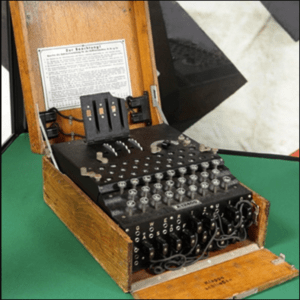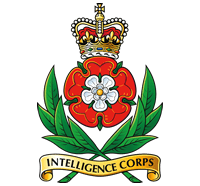Historical Musing Geese and Golden Eggs

For some time I have been exercised by statements made about Enigma and have wondered ‘what was their source?’. Every schoolboy knows (to quote Macaulay) that Churchill described the workers at Bletchley Park (B.P.) as his ‘geese’ and the Enigma product as his ‘golden eggs’. He also supposedly made what were, by any standards, derogatory remarks about the appearance of what could be found under stones; presumably hinting at frogs or toads. (He wasn’t actually good-looking himself!)
Do we know he actually made these remarks; if so, how do we know? Since these remarks were never recorded in any official record of Churchill’s speeches, what was the source and did Churchill ever say them? Did Churchill have his Boswell? If so, it was either someone already working at B.P. or one of Churchill’s party with the highest of security clearances.
When and where is the easy bit! According to Milton Keynes News the prime minister visited the Park only once, on 6 September 1941. The codebreakers (as they are now known) according to legend he dubbed, ‘the geese that laid the golden eggs but never cackled’.
Well, if we want an authority on Churchill’s words we can go to no better source than Sir Martin Gilbert who, in addition to being a member of the Corps was also Churchill’s official biographer. As late as 11 May 2015, Gilbert was writing “Churchill later called these decrypts his ‘golden eggs’ and how they had been laid, he commented, by ‘the geese who never cackled’. He surely must have been certain of his facts! One has to be circumspect, though; Sir Martin was exceedingly ill at this time. Earlier, Gilbert tracked the quotation in his official biography Winston S. Churchill: Vol VI, Finest Hour 1939-1941, London, Heinemann, 1983 p. 612.
After a short while, the codename ‘Boniface’ was replaced by ‘CX’ . . . In his own notes and telegrams, however, Churchill continued to refer to the Enigma messages as ‘Boniface’ and was later heard to refer to the deciphering staff at Bletchley as ‘the geese who laid the golden eggs and never cackled’. He called them more colloquially ‘his hens’.*
*A communication from a Bletchley ‘hand’.
Who was the culprit? I need very little excuse to pore over my collection of Enigma books. One of my least liked books on Ultra is Winterbotham’s The Ultra Secret, 1974. He was of no use! However, let’s not dismiss Winterbotham entirely for the moment. Interestingly, Ronald Lewin in his foreword to Ulltra goes to War, ‘acknowledged a principal debt of gratitude to Winterbotham who shared with me his memories, his files and his friendship’. Am I perhaps, being unkind to Winterbotham? Could he have been Lewin’s source? Highly unlikely – if he had been the source he would have trumpeted it loud and clear.
Ronald Lewin wrote Ultra goes to War in 1978 not long after Winterbotham’s The Ultra Secret. On page 64 of my (yellowing) edition I find the following reference: ‘Churchill himself, asking for Ultra papers, would say “where are my eggs”: he had a way of referring to the people at Bletchley as “the geese that laid the golden eggs and never cackled”’.
Of course, Churchill had a problem. The Bletchley story was an official secret long after the end of the War, until 1974. As a result, he was unable to make reference to any SIGINT secrets when writing his History of the Second World War, 1948. What a temptation that must have been – he loved his SIGINT papers!
To my surprise, one of the earliest mentions of ‘geese and golden eggs’ that I could trace was in David Kahn’s book Seizing the Enigma (1991). Kahn as the original source of the quotation is somewhat doubtful though. He was not one of the Americans who were employed at GC&CS (now GCHQ). His greatest work on the field of cryptography was The Codebreakers, published in 1967. The publisher, the Macmillan Company, handed over the manuscript to the US Federal Government for review without Kahn’s permission on 4 March 1966. Kahn and Macmillan eventually agreed to remove some material from the manuscript, particularly concerning the relationship between the NSA, as it later became, and its British counterpart GCHQ.
By the way, I am not alone in my search. Genuine academics have been researching this conundrum. They have tracked back to 1941 on their scans but cannot trace the source. Maybe, one day, someone fossicking through the vast Churchill archive will come up with the vital piece of paper. I will not hold my breath. Who, if anyone, had relayed Churchill’s words? Were they even Churchill’s own words? He was, by the way, notorious for editing, polishing and rehearsing his impromptu words, often in front of a mirror. Mischievously, may I make a possible culprit?
Malcolm Muggeridge, the journalist and TV star, has passed into history if not quite oblivion. As ex- Corps author Michael Smith (Station X, 1998) tells us, Muggeridge served in MI6 during the war and the Intelligence Corps, visiting Bletchley on at least a couple of occasions. He was also one of the first to spill the Bletchley beans in his early biographies, far, far earlier than Winterbotham. He was certainly sufficient as a wit and iconoclast. These are his words when describing the playing of rounders at B.P.
They adopted the quasi-serious manner [that] dons affect, when engaged in activities likely to be regarded as frivolous or insignificant in comparison with their weightier studies. They would dispute some point about the game with the same fervour as they might the question of free will or determinism, or whether the world began with a big bang or a process of continuous creation. Shaking their heads ponderously, sucking air noisily into their noses between words.
There is something about it that resonates. Paul Croxson 20. 11 2016
